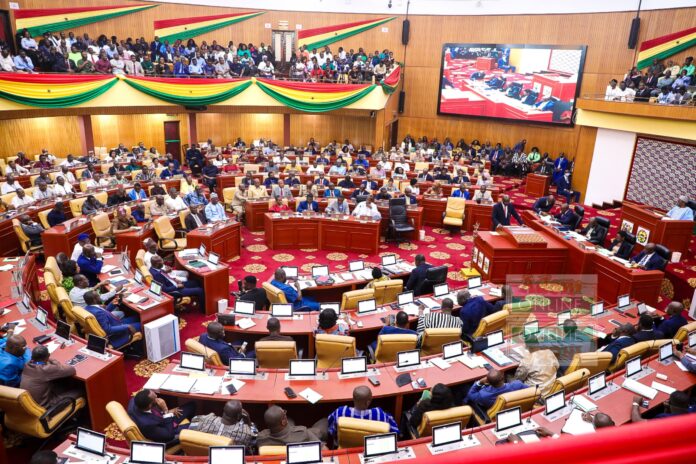Parliament has passed the Fisheries and Aquaculture Bill, 2025, to enhance effective regulation of Ghana’s fisheries and aquaculture sector.
The purpose of the bill is to establish a modern legal framework to improve governance, development and sustainability within the sector, which plays a crucial role in the national economy.
The bill specifically seeks to review and consolidate laws related to the sustainable exploitation of fisheries resources. It also provides for the implementation of an Electronic Monitoring System to meet European Union and United States market requirements for legally sourced seafood.
Once assented to by the President, the bill will establish a Fisheries Commission to ensure the long-term conservation, development, management and utilisation of Ghana’s fisheries and aquaculture resources. It also introduces stricter penalties for illegal, unreported and unregulated (IUU) fishing.
Avoiding “Red Card” sanctions
Ghana’s current legal framework, the Fisheries Act, 2002 (Act 625), is outdated and lacks provisions to effectively address IUU fishing and impose adequate penalties on offenders. Ghana was issued a “yellow card” by the European Commission in 2021 for failing to tackle IUU fishing adequately.
Failure to update the legal regime could result in a “red card”, which would trigger a ban on the export of fish and fishery products to the European market, potentially costing Ghana an estimated $425.9 million in lost revenue.
The bill was presented to Parliament by the Minister for Fisheries and Aquaculture, Emelia Arthur, on June 3, 2025, and was referred to the Committee on Food, Agriculture and Cocoa Affairs for consideration.
Background and justification
According to the committee’s report, signed by its Chairman, Dr Godfred Seidu Jasaw, the fisheries and aquaculture sectors are vital to national development—particularly in job and wealth creation, poverty reduction, GDP contribution and foreign exchange earnings.
The report emphasised that sustainable management and exploitation of these resources required a robust legal framework to govern fishing activities, regulate resource extraction, and ensure compliance with both national and international environmental standards.
Currently, Ghana’s legal regime for the sector comprises the Fisheries Act, 2002 (Act 625), as amended by the Fisheries (Amendment) Act, 2014 (Act 880), and supported by the Fisheries Regulations, 2010 (L.I. 1968), the Fisheries (Amendment) Regulations, 2015 (L.I. 2217), and the National Premix Fuel Committee Regulations, 2016 (L.I. 2233).
However, since its passage in 2002, Act 625 has not undergone substantial revisions to reflect new challenges in sustainable fisheries management, despite granting the minister the power to introduce anti-IUU regulations.
Gaps and reforms
The report noted that international recommendations from conventions such as the Port State Measures Agreement—ratified by Ghana—had not been sufficiently integrated into the current law. Act 625 also fell short in addressing emerging local issues, such as aquaculture practices, post-harvest management, inland fisheries, gear selectivity, and climate change.
Reviews by the World Bank’s West African Regional Fisheries Programme in 2015 and the FAO in 2019 highlighted significant legal gaps and inconsistencies resulting from piecemeal amendments.
The newly passed bill, therefore, aims to modernise Ghana’s fisheries legal framework, support sustainable resource management, enhance food security and align with global fisheries governance standards.
“These legislative reforms are designed to align Ghana with international fisheries management obligations, ensuring both ecological and economic sustainability in the long term,” the report stated.
Source: Graphic.com.gh
ALSO READ:



